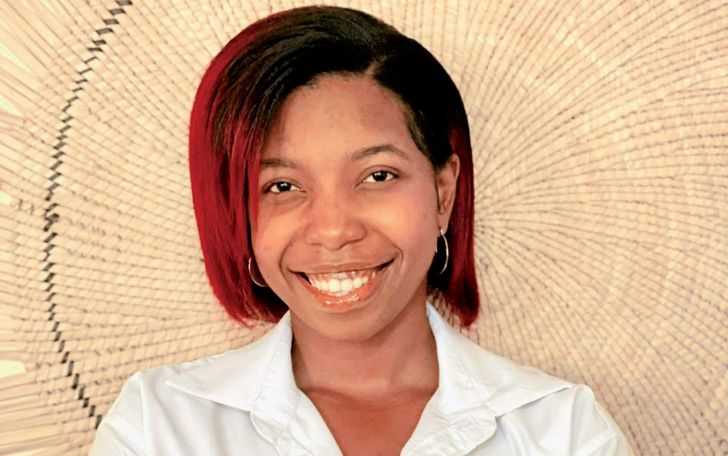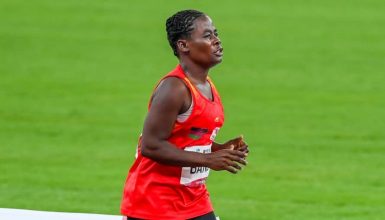Olive Chilenga: Founder of Harvest Hut
Olive Chilenga is one of the few young women standing tall and making community impact for change.
At only 26, she is a passionate advocate for sustainable agriculture, environmental conservation and community empowerment, specifically for women and youths.

Olive epitomizes the spirit of youthful determination and community leadership.
After witnessing firsthand the struggles of smallholder farmers amid climate change challenges and land degradation, she embarked on a mission to revolutionise agriculture.
She founded Harvest Hut, an organisation dedicated to promoting sustainable farming practices, fostering community resilience and empowering marginalised.
Her initiative aims to bridge the gap in traditional agriculture by not only providing agricultural products, but also offering comprehensive training and support to farmers.
“Harvest Hut was inspired by a deep-rooted passion for addressing pressing challenges faced by rural communities, particularly in the realm of sustainable agriculture and community empowerment.
“I was driven to take action and make a tangible difference in people’s lives,” she said.
Olive uses Harvest Hut as a vegetable retail delivery store dedicated to supplying high-quality vegetables.
She also ensures food safety with vegetables grown under great supervision by professionals.
“We prioritise education and capacity-building; equipping farmers with knowledge and skills to maximise yields, adapt to climate change and improve their livelihoods,” she said.
Olive said she observed the transition of smallholder farmers from high yields to significantly diminished harvests due to the impacts of climate change.
In addition, residing in communities characterised by social inequalities for marginalised groups further fuelled her motivation to advocate for sustainable agriculture and community empowerment at the grassroots level.
She also added that her academic background in political leadership and political science gave her an understanding of governance structures, policy frameworks and societal dynamics.
“By applying principles of effective leadership and governance, I am able to navigate complex socio-political landscapes and mobilise stakeholders towards common goals.
“My studies have equipped me with critical thinking skills and analytical tools to assess the root causes of social and environmental challenges.”
Olive’s leadership has revitalised the local pork industry, combated deforestation through pine tree cultivation, empowered women, enhanced food security and zero-waste circular economy practices.
“For instance, the devastation caused by cyclone Freddy last year destroyed crops and depleted soil health, exacerbating food insecurity to about 15 percent of our population.
“Dry spells this year further compound the situation, potentially leading to a robust rise in the food insecurity rate in the country,” she noted.
Olive says these challenges have influenced her approach to driving transformative initiatives by highlighting the urgent need for resilient and sustainable agricultural practices.
“By promoting resilient farming techniques such as sack farming and intercropping, providing access to drought-resistant crop varieties and advocating for soil conservation measures, we aim to empower smallholder farmers to mitigate the impacts of climate change and land degradation,” she said.
She emphasizes community-based approaches that foster collaboration, knowledge-sharing and resource mobilisation to build resilience and ensure food security in the face of environmental challenges.
Olive is a member of Young Professionals for Agricultural Development and an alumna of the Elevating the Voices of Women in Agriculture Changemakers 2023 programme.
She extends her influence globally, engaging with the Climate Mobility Guidebook launched at COP28 and aspiring to participate in environmental assemblies.
With a remarkable track record in sustainable agriculture and environmental advocacy, she is a beacon of leadership, driving change towards a more sustainable and equitable world.
These affiliations have provided her with invaluable opportunities for learning, networking and collaboration within the agricultural sector, both nationally and internationally.
Entering the entrepreneurial world at a young age, especially in the farming industry, was motivated by a desire to drive positive change and create meaningful impact.
“Recognising the pivotal role of agriculture in Malawi’s economy and its potential to uplift communities, I saw entrepreneurship as a powerful vehicle for driving innovation, fostering economic growth and addressing social and environmental challenges.
“By harnessing my passion for sustainability and community development, I founded Harvest Hut to contribute to a brighter and more prosperous future for Malawi’s rural communities,” she said.
On revitalising the local pork industry, she shares that Harvest Hut focuses on improving the quality and marketability of pork products by introducing improved pig breeds, mainly the Camborough breed and modern farming techniques.
Through selective breeding and proper nutrition management, her company aims to enhance pig productivity and produce high-quality pork that meets market standards.
“Our primary revenue streams encompass a diverse range of products and services. We supply pine tree seedlings to individual homes, organisations and institutions.
“We also offer piglets and a variety of pork products, including pork chops, pork ribs, trotters and soon-to-be-introduced pork sausages. Furthermore, we provide pork by-products such as dog food [sawdust] to individual homes, restaurants and fellow farmers,” she said.
Olive says they also sale beans, maize and groundnuts, alongside the rental of maize and groundnut shelling machines and grain grading equipment.
On combating deforestation her initiative participates in reforestation campaigns and promotes sustainable forestry practices.
“We have so far contributed to at least 100 000 trees, replenishing forest cover and mitigating deforestation,” said Olive
Through initiatives like sack farming and sustainable agriculture education, women are empowered to maximise yields on minimal land, improve their economic status and decision-making power within their households and communities
They also train farmers in climate-smart agriculture techniques and facilitating access to improved seeds and tools that helps communities adapt to climate change and increase agricultural productivity.
To achieve zero waste circular economy practices they promote the use of organic waste, such as pig dung, as fertilizer for crop production, fostering a circular economy model.
Going forward the organization aims to plantthrough pine at least 1 200 000 trees by 2027 and train over 500 female smallholder farmers by 2027.
For aspiring young leaders in sustainable agriculture and community empowerment, Olive advises them to embrace change.
She said adaptability and navigating through challenges are crucial for driving positive change in these fields.
Olive was born on June 24 1998, has a bachelors degree in social sciences and finalising her Masters of Arts in political science at the University of Malawi.
She comes from Zomba, Traditional Authority Mwambo ad her parents are Colonel H. and late Hanna Chilenga.





